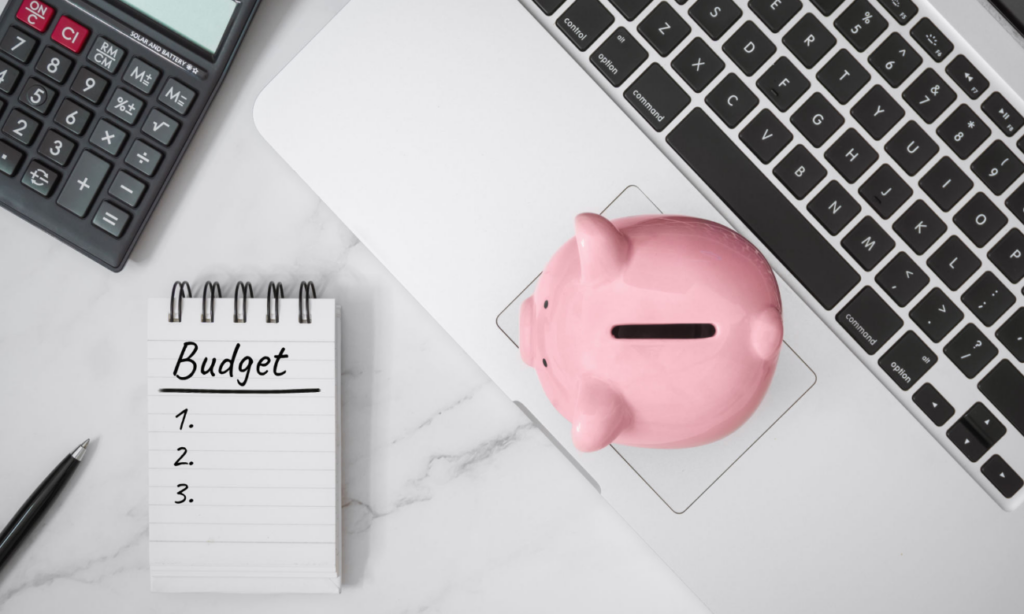
When you decide to create a budget for yourself, you are taking charge of your financial future. In today’s fast-paced world, learning how to create a budget is one of the most empowering steps you can take. This article is designed to help you understand the fundamentals of budgeting, guide you through practical strategies, and inspire you to maintain control over your expenses and savings.
Why Budgeting Makes a Difference
Budgeting is more than just tracking every dollar—it’s a roadmap for achieving your financial goals. When you create a budget, you set clear priorities, eliminate unnecessary spending, and set aside funds for future opportunities. Learning to create a budget ensures that you always know where your money goes and that you can plan for both short-term needs and long-term dreams.
Budgeting offers a real sense of control. By choosing to create a budget, you empower yourself to handle unexpected expenses and reduce money-related stress. With a solid plan in place, you can explore exciting possibilities like saving for a dream vacation or investing in further education all without feeling overwhelmed by your day-to-day financial challenges.
How a Budget Can Improve Your Life
Taking the time to create a budget brings tangible benefits to your everyday life. Here are a few ways that a good budget can work for you:
- Financial Clarity: Knowing exactly what you earn and where every dollar goes is the first step toward better money management. When you create a budget, you see areas where you can trim wasteful spending.
- Setting Achievable Goals: A well-crafted budget helps you set practical savings or debt reduction targets. Every time you create a budget, you take one step closer to making your dreams a reality.
- Lower Stress Levels: Financial uncertainty can be a huge burden. With a reliable budget, you gain a sense of security and peace of mind.
- Empowered Decision Making: With clear financial limits in place, every purchase becomes a deliberate choice. Learning to create a budget helps you differentiate between wants and needs, leading to smarter spending overall.
By harnessing the power of budgeting, you not only take control of your present finances but also pave the way for a more secure and promising future.
How to Create a Budget: The Step-by-Step Process
Taking the time to create a budget is a worthwhile investment. Here’s a clear, step-by-step guide to set you on the right path:
1. Assess Your Income and Expenses
Begin by gathering all sources of income and listing every expense you incur. When you create a budget, it’s essential to account for both fixed costs (like rent, utilities, and loan payments) and variable expenses (such as groceries, entertainment, and dining out).
- Track Every Expense: Record your spending for at least one month to build an accurate picture of your habits.
- List All Income Sources: Include salaries, freelance earnings, or any other money streams.
2. Set Clear Financial Goals
Before you create a budget, take some time to define what you want to achieve. Are you saving for an emergency, planning for a down payment on a home, or preparing for retirement? Clear goals will help you shape your budgeting priorities and decide where to allocate more funds.
- Short-Term Goals: Consider immediate needs like starting an emergency fund or paying off a small debt.
- Long-Term Goals: Include plans such as homeownership, starting a business, or building a retirement nest egg.
3. Develop Your Spending Plan
With a clear picture of your income and expenses, you can now create a budget tailored to your lifestyle. Allocate your income according to your financial commitments and priorities. Consider familiar budgeting frameworks like the 50/30/20 rule and adjust percentages to best match your personal circumstances.
- Essential Expenses: Cover the necessary costs of living.
- Discretionary Spending: Reserve a portion of your budget for leisure and non-essential purchases.
- Savings and Debt Repayment: Dedicate a solid portion of your income toward saving and reducing debt.
4. Implement and Monitor Your Budget
After you create a budget, it’s time to put it into action. Use budgeting apps or a simple spreadsheet to track your progress diligently. It’s advisable to include regular financial check-ups in your routine this ensures that your plan stays aligned with your evolving financial situation.
- Review Monthly: Set aside time each month to compare your actual spending with your budgeted amounts.
- Adjust Accordingly: Life changes, so modify your budget as your income or expenses evolve.
5. Stick to Your Plan
The success of your decision to create a budget depends on consistency and discipline. Good habits like tracking every expenditure and automatically transferring money to your savings can make a significant difference over time.
- Celebrate Milestones: Recognize your achievements, such as paying off debt or reaching a savings target.
- Stay Motivated: Remind yourself that every time you create a budget and follow it, you are reinforcing a habit that secures your financial well-being.
Simple Strategies for Keeping Your Budget on Track
Here are some practical tips to ensure your budget remains a helpful guide in your everyday life:
- Keep It Real: Avoid setting overly strict limits that can discourage you. When you create a budget, make it reflect your actual lifestyle and spending patterns.
- Make Saving a Habit: Automate transfers to your savings account so that each time you create a budget, a portion of your income is automatically saved.
- Plan for the Unexpected: Life is unpredictable—include a buffer for irregular expenses to avoid disrupting your financial plan.
- Stay Informed: Continuously educate yourself on personal finance; even small insights can make a big difference in how effectively you create a budget.
- Review and Adjust: Make it a point to revisit your budget regularly to ensure it still aligns with your current goals and lifestyle.
By applying these straightforward strategies, you can keep your budget not just as a document but as a living guide that grows with you and adapts to your needs.
Handling Budgeting Roadblocks

Even with the best efforts, you might encounter challenges along your budgeting journey. Here are some realistic approaches to handle common hurdles:
- Impulse Spending: Reduce spontaneous purchases by planning your shopping trips and sticking to a list.
- Underestimating Expenses: Always factor in a little extra for costs that might exceed your estimates. When you create a budget, be honest and realistic about your spending habits.
- Sticking to the Plan: Life can be unpredictable. If unforeseen events occur, don’t get discouraged—review your budget, make necessary adjustments, and get back on track as soon as possible.
Facing these obstacles is part of the process. Each time you create a budget and navigate through these roadblocks, you build resilience and a deeper understanding of your financial habits.
The Long-Term Impact of a Thoughtful Budget
Embracing the habit to create a budget can transform more than just your bank account—it shapes your overall financial mindset. By taking control of your expenses and saving wisely, you lay a strong foundation for your future. A disciplined budgeting approach enables you to be prepared for major investments, tackle debt effectively, and ultimately, enjoy a more secure and stress-free life.
Every time you create a budget, you are reinforcing habits that lead to financial independence, whether you’re saving for a rainy day, planning for a major purchase, or investing in your future. The consistent practice of budgeting brings clarity, control, and confidence into your financial journey, and over time, these small, steady steps add up to significant progress.
Wrapping It All Up
Deciding to create a budget is a powerful first step toward taking full control of your finances. Every time you create a budget, you not only plan for your immediate needs but also set the stage for future growth, security, and freedom. Embrace the process, knowing that with each disciplined step, you are building a more secure tomorrow. Enjoy the journey to financial empowerment, and let every budgeting milestone remind you that you are truly in the driver’s seat of your financial destiny.
